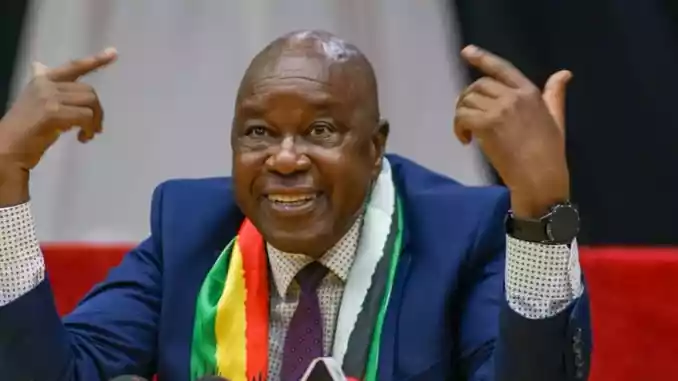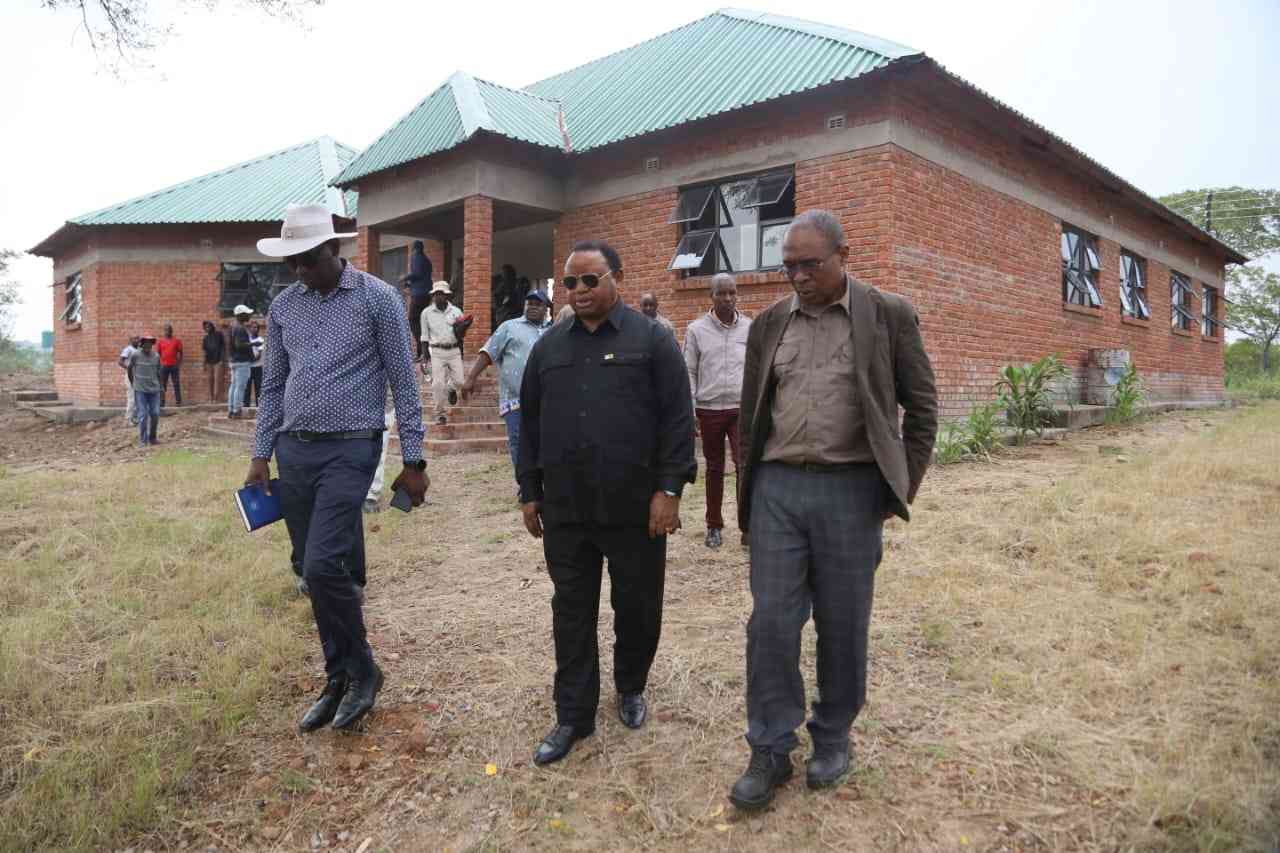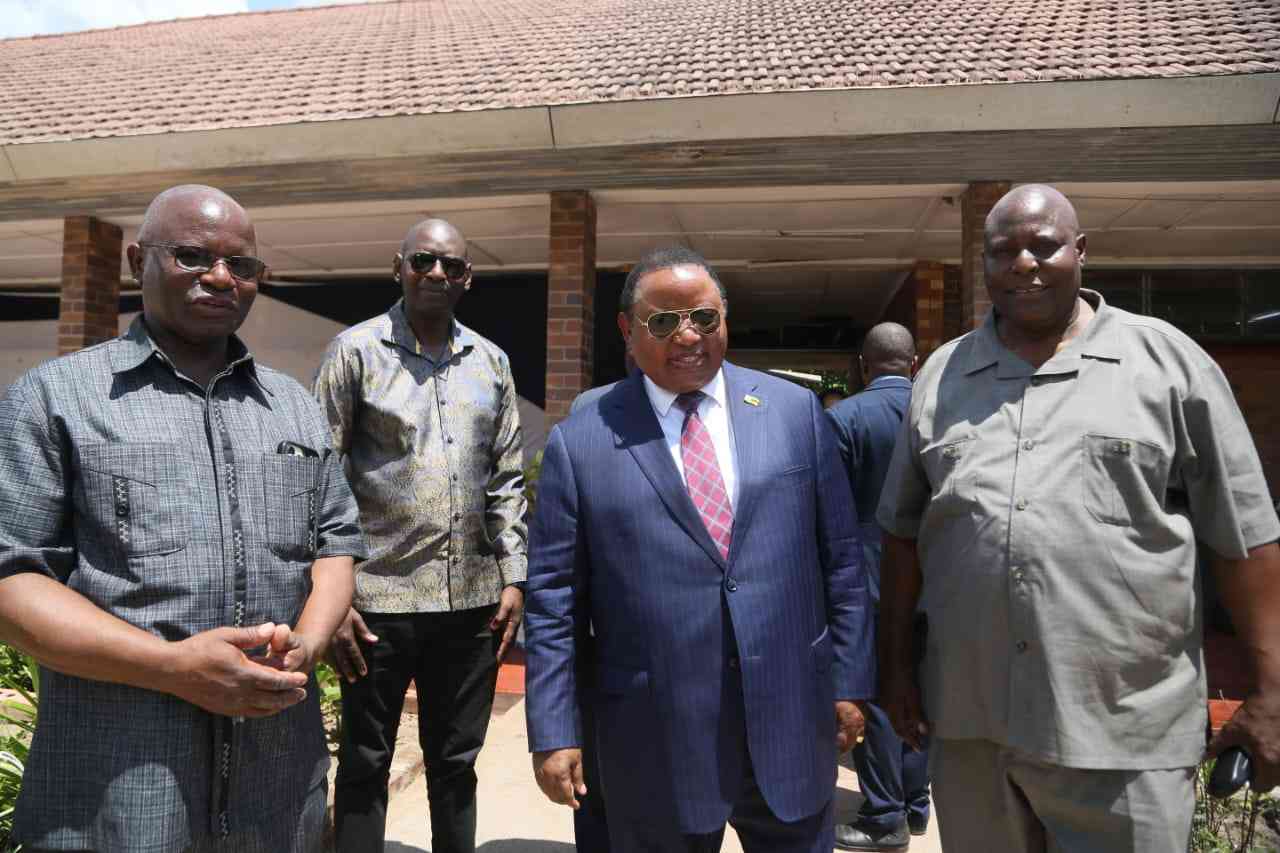
ZANU PF spokesperson, Christopher Mutsvangwa, has stirred controversy over his comments on the Ndebele monarchy, with a representative for King Bulelani Collins Khumalo telling him to “shut up” if he does not understand their history and culture.
The criticism came after Mutsvangwa, speaking at a pre-budget seminar in Bulawayo last week, claimed that the privately crowned King Bulelani had “designated himself as a king” and that local chiefs refused to submit to a “king from South Africa.”
King Bulelani’s spokesperson, Bornman Khumalo, however, accused Mutsvangwa of profound ignorance and pushing a tribal agenda.
“It’s very unfortunate that he is a politician who now wants to get involved in our culture displaying ignorance at its worst,” he said.
“Shame on him because more is coming.
“They must leave us alone.”
He added: “For this politician to call King Lobengula’s descendents foreigners is a big insult to the Ndebele nation, he must desist from trying to talk about our history he knows nothing about.”
“Its best that he keeps quiet and let the Ndebeles be with their tradition and cultural heritage and leadership.”
- Mnangagwa marches expose Zanu PF fights
- Zanu PF bigwigs face axe in purge
- Symptoms of toxicity at workplaces
- Zanu PF splurges cash on delegates
Keep Reading
Khumalo clarified the King’s lineage, explaining that Bulelani Khumalo is a direct descendant of King Lobengula.
He attributed the family’s presence in South Africa to forced exile by colonial powers.
“Those people he calls foreigners are not foreigners; they were taken from their people against their will by the oppressors,” Khumalo indicated.
He also indicated that the royal clan has struggled to engage with the government due to bureaucracy.
During the seminar, Mutsvangwa addressed the events of the recent Mzilikazi Day celebration, where Bulelani Khumalo was a guest of honour.
“He designated himself as the king of something, and our chiefs did not want to submit to a king from South Africa from an etiquette point of view and from a political point of view,” Mutsvangwa claimed.
Tourism and Hospitality minister, Barbra Rwodzi, distanced her ministry from the event.
She explained that the organisers were from the private sector and had not involved the government, which is why official protocols were not followed.
“Because the organisers did not want our involvement, we do not force ourselves on private events,” Rwodzi said.
Freedom Alliance Chairman, Mqondisi Ndebele, said Mutswangwa’s statement was based on tribalism.
“He must go and study Ndebele history and must not cause divisions between our chiefs and the kingship,” Ndebele said.
“I thank the comment from the minister of tourism; she speaks what she knows about the Ndebele culture.”
Historical records confirm that Bulelani Khumalo is the son of Prince Humphrey Lobengula and a great-great-grandson of the last Ndebele king, Lobengula.
After the fall of the Ndebele Kingdom in 1893, potential heirs to the throne—King Lobengula’s sons Njube, Mphezeni, and Nguboyenja—were exiled to the Cape Colony by the BSAC administration.
Cecil John Rhodes personally oversaw their removal, a move historians see as a calculated strategy to detach the royal lineage from its political and cultural base.
Despite government attempts to block the coronation, Bulelani Lobengula Khumalo was crowned in a private ceremony by the Khumalo royal house, the first such coronation since King Lobengula’s death in 1893.
He has since been warmly received by communities in and around Bulawayo.









